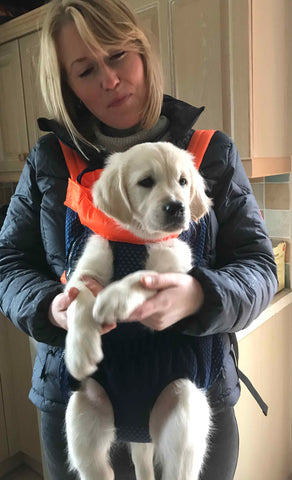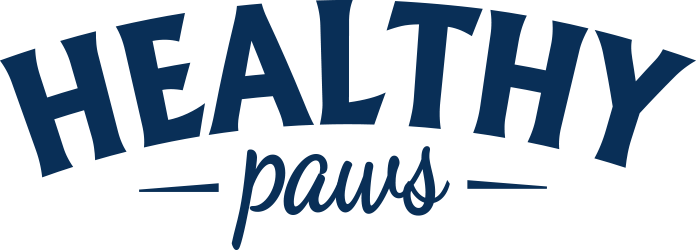Blog
New puppy advice from Healthy Paws
As a team of dog lovers, we’re often asked for advice when friends and colleagues acquire a new puppy and some of these nuggets of information can be extremely useful.
A very simple idea that eases the puppy into its new home is to include something that smells of its Mum into its new bed. That reassuring smell will help it settle – we suggest dropping off a flannel or a scarf or small pillow with the breeder to put with the Mum until you collect the new member of your family.
Your breeder will usually give you enough food to cover a couple of meals, but we recommend that a change to Healthy Paws food should be done immediately if the puppy’s not already on it. Pups often have a runny tummy for a day or two while they cope with the stress of moving to their forever home, but that should soon settle down. The back of the pack has a feeding guide with a minimum daily quantity by weight rising to a maximum. Start with the minimum – of course what goes in must come out and you should be looking for firm stools; if they start to get sloppy it means you’re feeding too much food volume. Up to 12 weeks old, puppies are normally fed four times a day, after 12 weeks reduce it to three times a day and by 16 weeks it should be twice a day. Don’t be tempted to give your pup human food titbits, Healthy Paws puppy food is carefully balanced to ensure the right phosphorous/calcium ratio for brain development, eye function and bone growth.
Vaccinating your puppy sets them up for a healthy start in life and takes the form of two sets of vaccinations, the first set is usually done by the breeder and the second set two to four weeks later is usually down to the new owner. These vaccinations protect against some very nasty diseases and will require a booster at six or 12 months. Register with a local vet and talk to them about vaccinations, microchipping, worming treatments and neutering.
Toilet training will have begun with the breeder, but continues apace once your puppy gets home with you. Should accidents happen, never rub a puppy’s nose in it, just take them outside gently and praise them when they perform outside. See our post about Copraphagia.
Up to 12 weeks this is an important time for socialisation with humans; the more humans that handle the puppy in that time the better and up to 16 weeks is the best time for canine socialisation. If you are still awaiting the second set of puppy vaccination jabs then ensure you only socialise with dogs whose vaccinations are up to date.

Taking your puppy to puppy training classes well before 16 weeks will help it to interact and learn and introducing recall to the whistle can be done very early and pays dividends later in life. Puppies always respond well to treats when they’re learning and Healthy Paws fruit cookies are great for that. Healthy Paws food is wheat and wheat gluten free because wheat can often cause allergic reactions in dogs – make sure that any training treats you use are wheat free too.
Once your puppy is twelve months old, it is usually ready to start on adult food. We recommend managing the transition by mixing either our Healthy Paws chicken and brown rice or Healthy Paws turkey and millet with the puppy food to start with – because our puppy food flavour is made from turkey and brown rice, the flavours will be similar. Once you’ve run out of puppy food, keep going on the adult food and you can introduce other flavours once the pup has made the transition.

